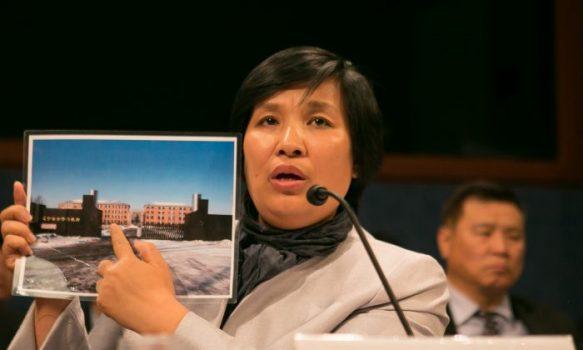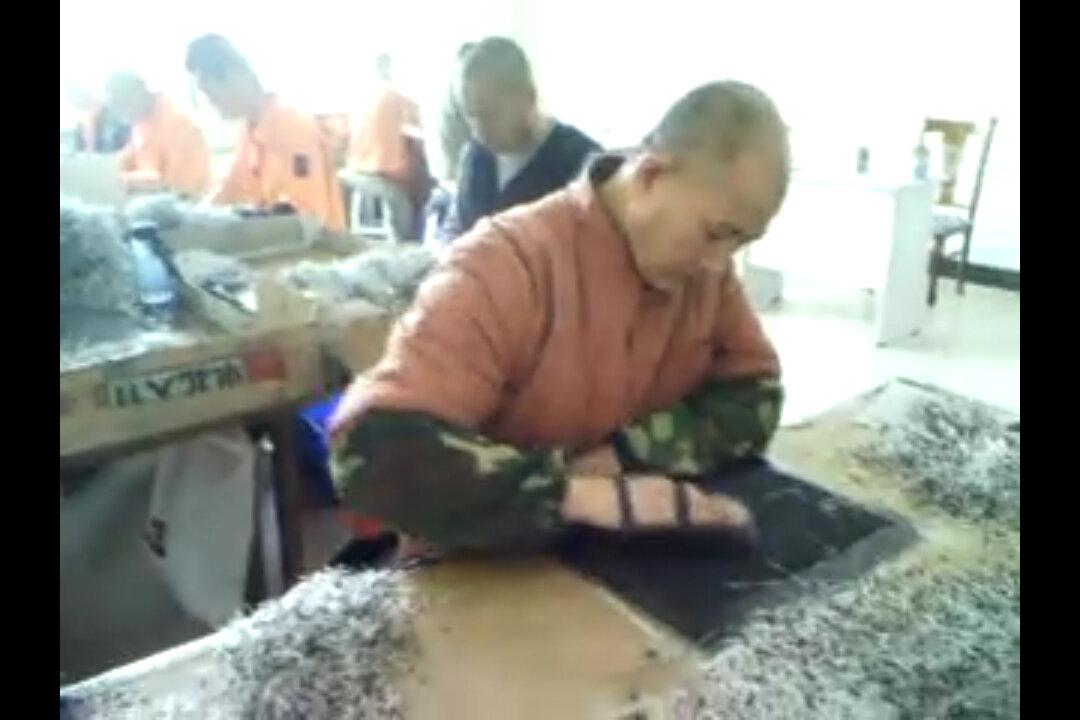China’s communist regime plays a significant role in several types of transnational crimes, according to a report from a Washington-based think tank.
The report by Global Financial Integrity highlighted the issues of forced labor and intellectual property infringement.
It also scrutinized the CCP’s role in drug trafficking, counterfeiting and IP theft, human trafficking, and wildlife trafficking.
“China serves as a major source, transit, and destination for narcotics trafficking, with the annual value of the domestic ‘drug industry’ an estimated US$82 billion,” the report said.
It cited data from the Global Slavery Index (GSI) on human trafficking. GSI estimated that, as of 2016, there were more than 3.8 million victims of modern slavery in China. Paring this data with the International Labor Organization’s average annual profit of $5,000 per victim in the Asia-Pacific region, Global Financial Integrity concluded that the value of human trafficking in China reached $19 billion.
“China has high levels of domestic human trafficking with the presence of both forced labor and forced sexual exploitation. Sexual exploitation most commonly involves forced prostitution, forced marriage, and online sex exploitation. Forced labor by state and non-state actors most frequently is used in the manufacturing, construction, fishing, and agricultural sectors,” the report said.
It also named China a “preeminent” player in counterfeit and pirated goods.
Going into wildlife trafficking, the report quoted a 2017 official document from the Chinese Academy of Engineering, which estimated the value of domestic legal wildlife trade at $74 billion. In other words, China is responsible for more than 62 percent of the global market.
“This makes China the biggest player in both the legal and illegal wildlife trades,” the report said.
Global Financial Integrity emphasized that the Chinese regime not only tolerates these crimes, but also actively engages in certain types of criminal activities.
Reliance on Labor Camps
Political activists as well as members of religious groups are targeted by the Chinese communist regime to perform forced labor “as part of detention,” according to the report.
Although the CCP claimed at its 2013 national congress to have ended the reeducation-through-labor system and closed most of its sites, forced labor continues secretly with the existing facilities changing the name to drug rehabilitation facilities or administrative detention centers.
Channing Mavrellis, Illicit Trade Director at Global Financial Integrity and author of the report, told The Epoch Times that the Chinese communist regime gains two benefits from forced labor: first, it is “how they see the best way to respond to dissidents;” and second, it provides free or low-cost labor.
According to minghui.org, a U.S.-based website that documents the persecution of spiritual group Falun Gong in China, before the persecution began, prisons and forced labor camps across China were mostly short of funds. Many were on the verge of bankruptcy, with dilapidated facilities.
IP Theft
The CCP also plays a role as a state criminal when it comes to intellectual property theft. The National Bureau of Asian Research, a U.S. think tank, estimates that China is responsible for 50 to 80 percent of international intellectual property theft worldwide. The Global Financial Integrity report points out that the majority of IP theft is sanctioned by the Chinese regime.Citing the Chicago Tribune, the Global Financial Integrity report said that the regime not only relies on spies to engage in commercial espionage, but also encourages and rewards Chinese citizens studying and working abroad to steal technology.





